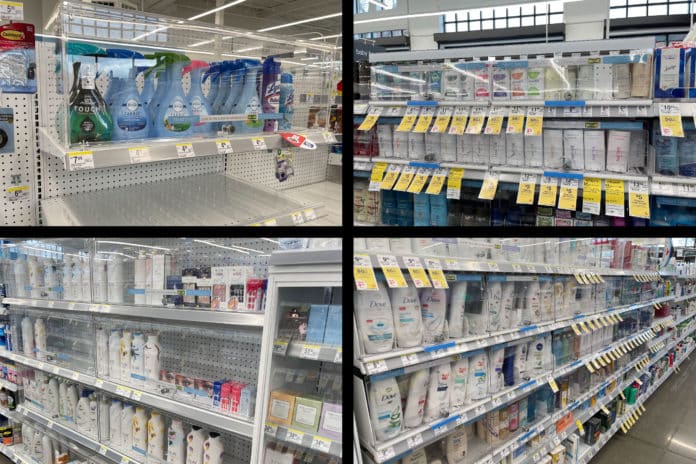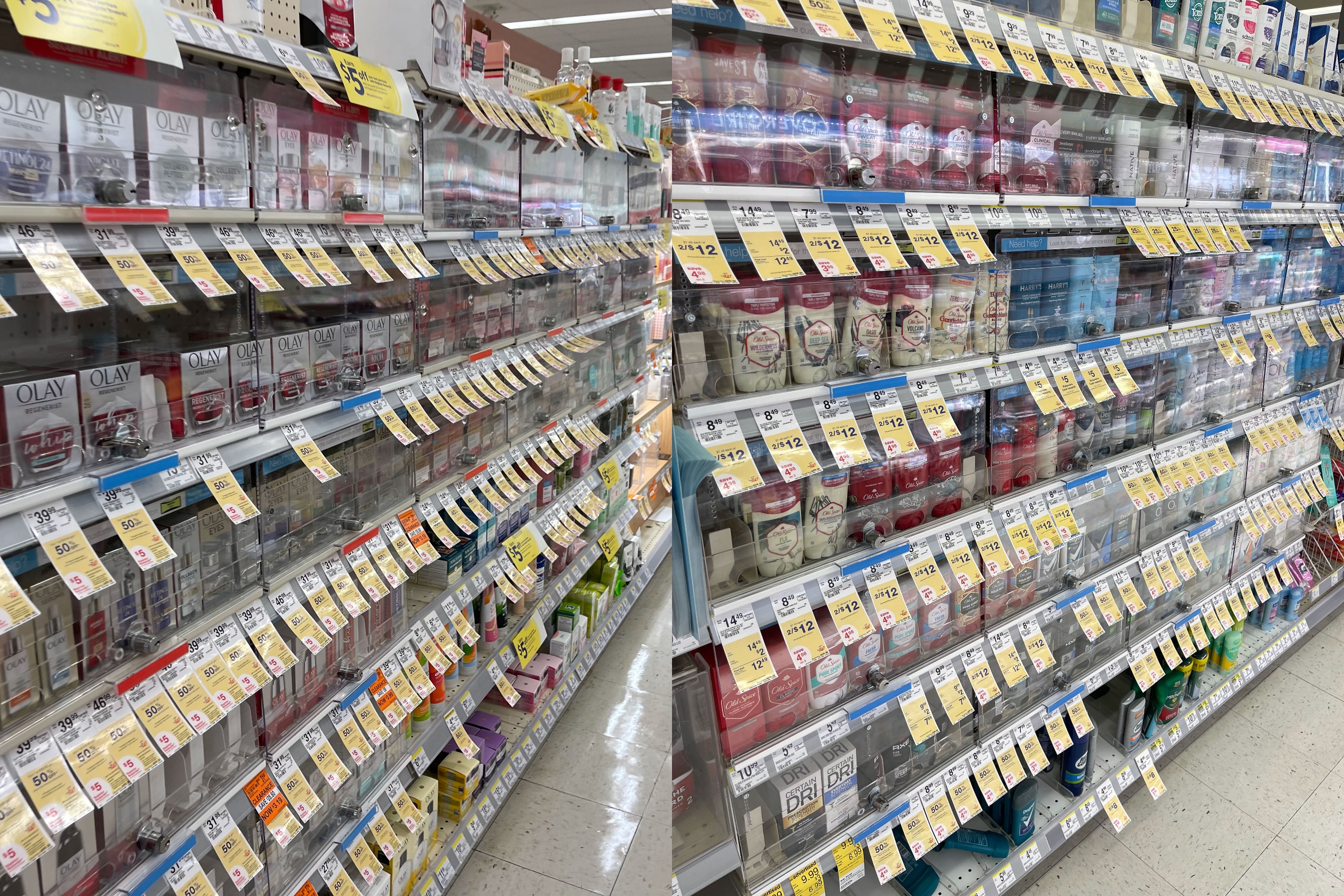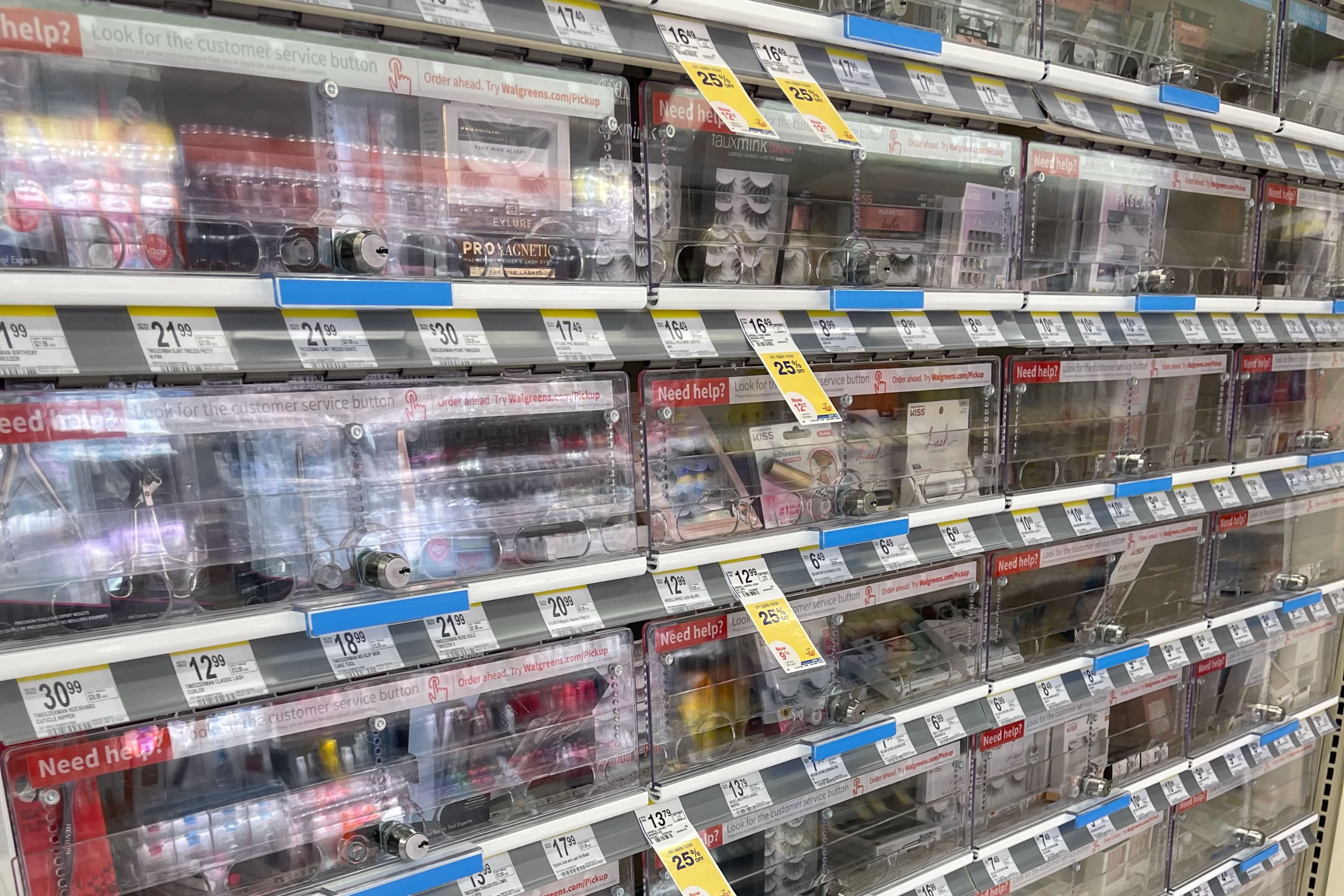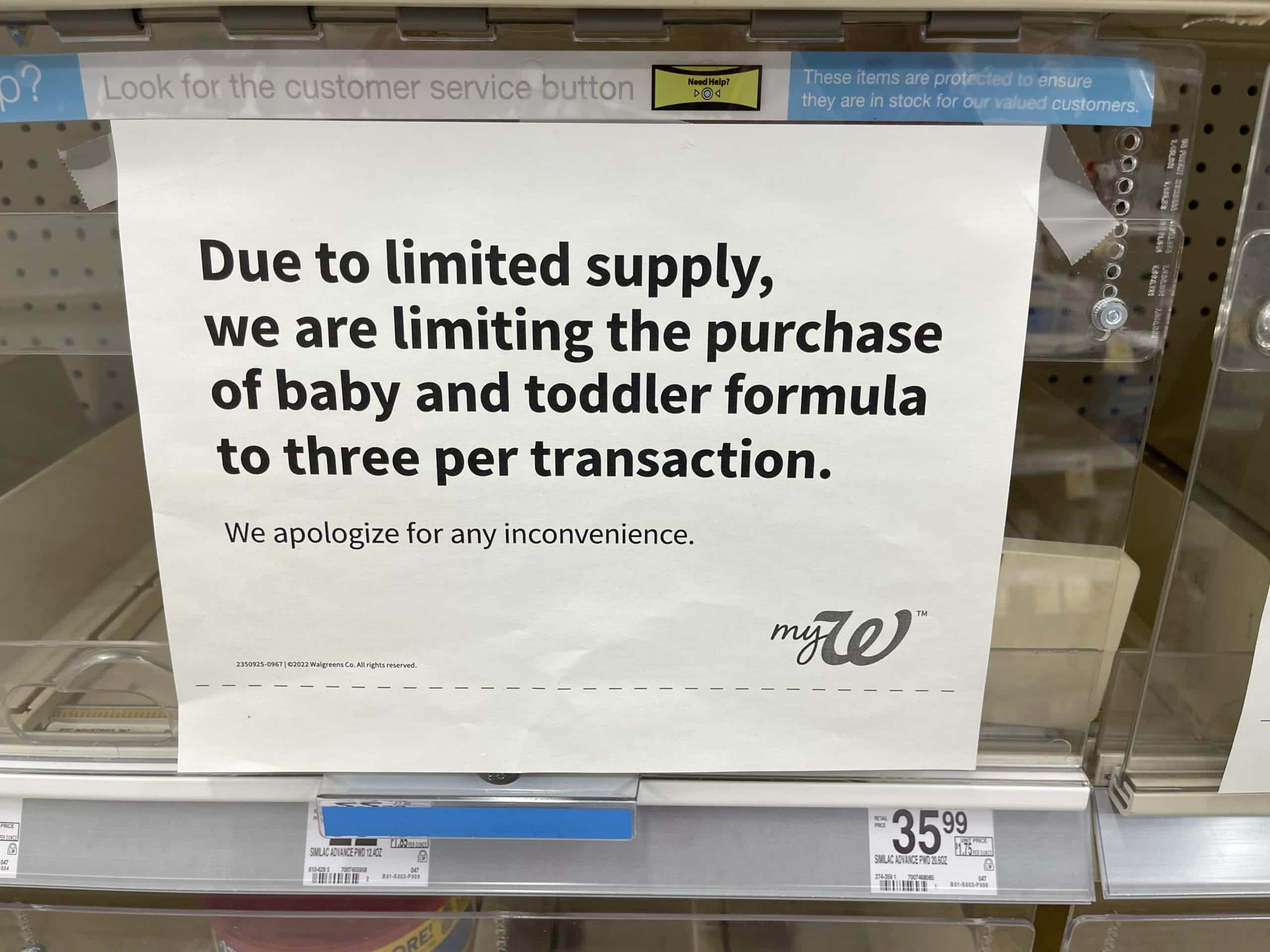
“Yes, we have to lock it up because they come in here and go like this,” a Walgreens store attendant demonstrated, making a scooping gesture with his right arm to show how thieves have swiped entire racks of deodorant in one motion.
His explanation clarifies why shoppers now have to speak with attendants to buy not just $6 sticks of deodorant but $5 containers of Febreze, $8 bottles of shampoo and various other products that are now behind glass.
Alpha News visited several Walgreens stores around the Twin Cities area and saw the same types of controls being put in place at different stores ranging from a location on Hennepin Avenue in Uptown Minneapolis to one on Grand Avenue in St. Paul.

Although it is not unusual for corner stores to employ anti-theft measures, such controls have become more prolific around the Twin Cities as stores struggle with gangs of organized retail thieves. The problem has gotten so extreme that the Minnesota Senate recently passed a provision specifically targeting these criminal gangs “by defining this crime [organized retail theft] in state statute and giving law enforcement better tools and updated laws to pursue these crime rings.”
In 2020, Walgreens pledged to end the practice of locking up beauty products primarily used by black customers.

Walgreens is not alone in taking steps to prevent thieves from scooping large amounts of product off the shelves. Target also seems to have rolled out new devices attached to the bottoms of shelves that prevent entire rows from being cleared out in one swoop.
Meanwhile, big box and corner stores alike are showing signs of the continued baby-food shortage that plagues the nation. Walgreens specifically seems to have instituted a rationing system, only allowing customers to buy three containers of baby formula per transaction.
















